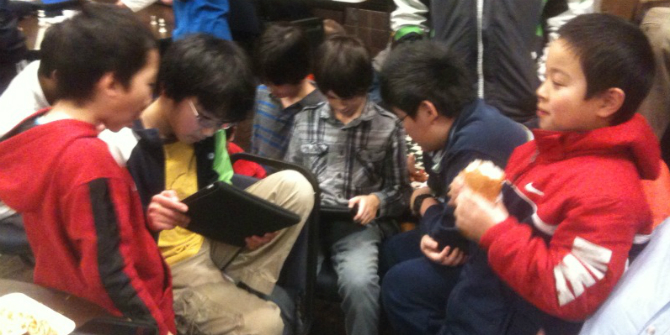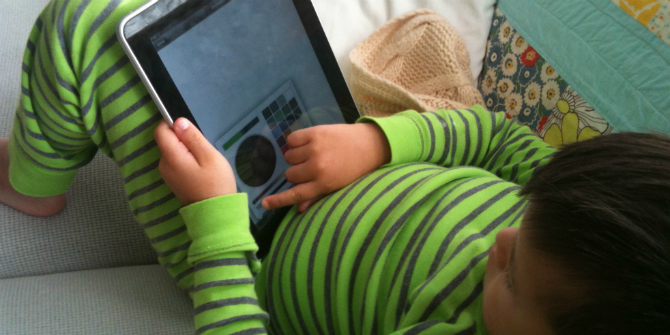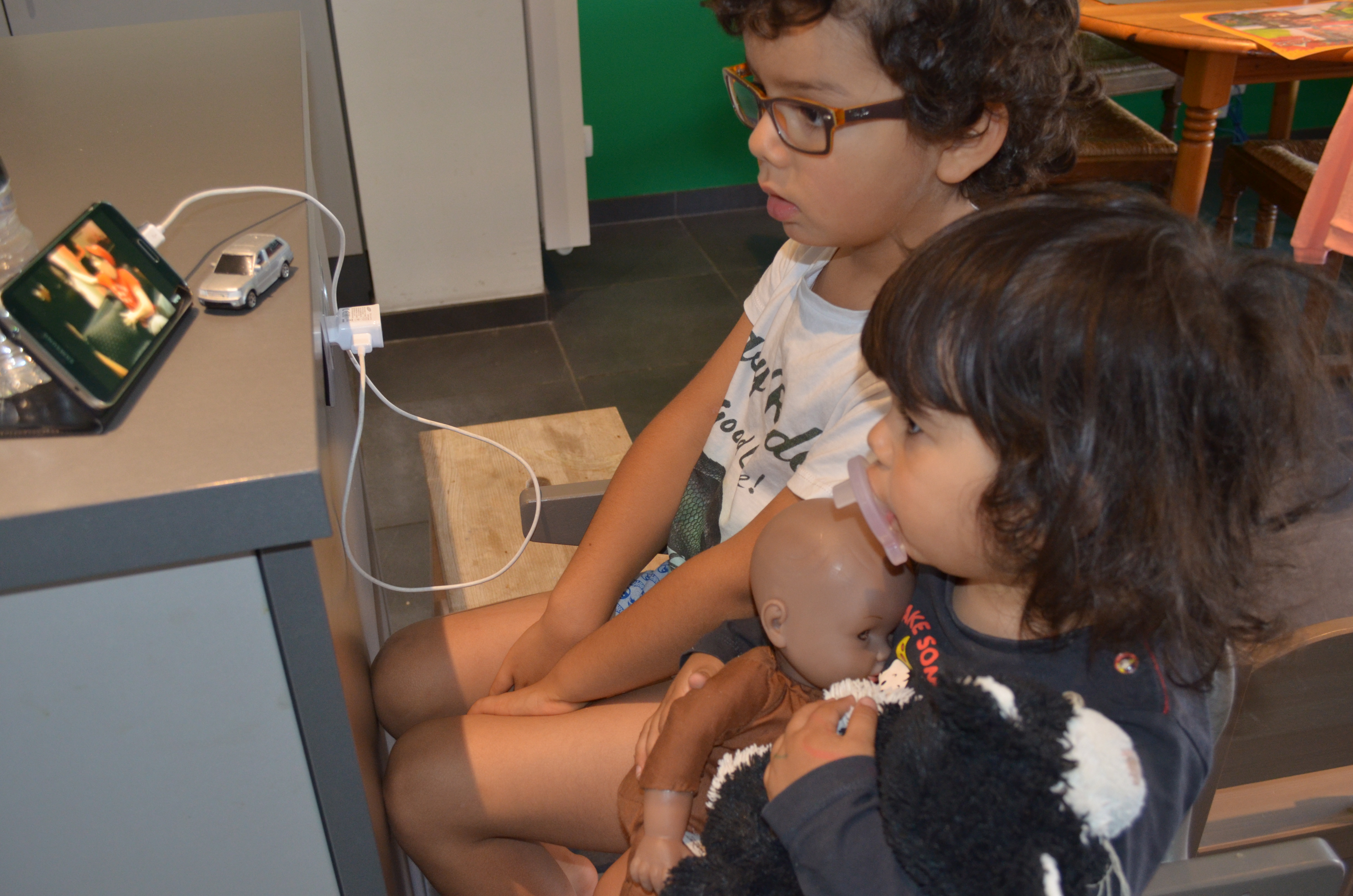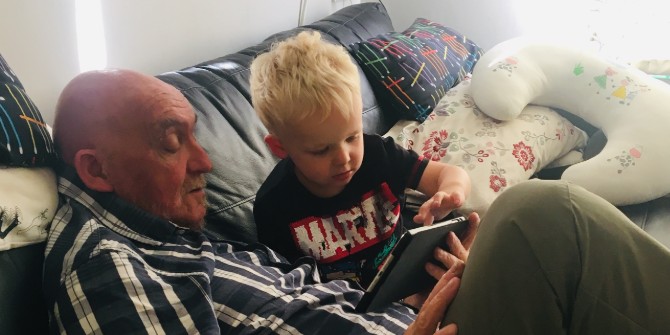 Giovanna Mascheroni summarises the findings from a workshop on policies and initatives for children’s safe internet use, held in September 2015, and outlines the challenges faced by parents in the Asia Pacific region. Giovanna is a Lecturer in the Department of Sociology, Università Cattolica, Milan and visiting fellow in the Department of Media and Communications at the LSE. She part of the EU Kids Online research team and of the COST Action DigiLitEY. [Header image credit: N. Hale, CC BY 2.0]
Giovanna Mascheroni summarises the findings from a workshop on policies and initatives for children’s safe internet use, held in September 2015, and outlines the challenges faced by parents in the Asia Pacific region. Giovanna is a Lecturer in the Department of Sociology, Università Cattolica, Milan and visiting fellow in the Department of Media and Communications at the LSE. She part of the EU Kids Online research team and of the COST Action DigiLitEY. [Header image credit: N. Hale, CC BY 2.0]
The UNESCO Asia and Pacific Regional Bureau for Education (UNESCO Bangkok) and the UNICEF Regional Office for East Asia and the Pacific (UNICEF EAPRO) recently co-hosted a regional consultation in Bangkok aimed at discussing and defining ‘Policies and initiatives to promote children’s safe, effective, and responsible use of ICT’.
During the three-day workshop it was clear that participants viewed parents as fundamental actors in the promotion of children’s digital citizenship. However, a number of challenges to parental mediation in the Asia Pacific context were also identified (see also the pitfalls of parenting the internet by Leslie Haddon).
Lack or paucity of policy initiatives
One major challenge in the Asia Pacific region is the lack or paucity of policy initiatives directed at parents. Michael Searson presented the preliminary findings of the review of national policy initiatives, showing that 55% of the surveyed countries address families through campaigns aimed at caregivers, with three main types of initiatives or resources aimed at promoting appropriate adult mediation of children’s use of the internet:
1. campaigns promoting mediation through the use of filters and parental controls;
2. initiatives promoting mediation through guidance on healthy limits of screen time and excessive internet use; and
3. initiatives aimed at preventing exposure to pornography, gaming and other addictive behaviour.
More specifically, the promotion of content filtering services is higher in Brunei, China and Malaysia. Attention to health issues and the prevention of addictive behaviour is also higher in Brunei and Malaysia, countries where the number of policy initiatives targeting parents and other caregivers is above average.
The generational digital divide
Concern for excessive internet use is also among the top preoccupations expressed by parents in the region, who, in this respect, are not dissimilar from parents elsewhere in the world. However, experts pointed to the generational digital divide as another major challenge that Asian Pacific parents need to face.
Ivan Beekmans, Digital Learning Coach at the NIST International School in Bangkok, illustrated the school’s approach towards internet safety education – 11-year-old students (Year 7) are given a tablet at school, but receive specific training before being allowed to bring the device home. This strategy responds to parents’ worries that they won’t be able to set clear limits to the time children spend online. The school also encourages parents to discuss tablet use with the children, in order to reach an agreement, or a ‘family contract’, that regulates the daily amount of gaming they are allowed (see strategies to mediate the use of tablets by Alicia Blum Ross).
Children are also asked to install and use an app that monitors their online activities and sends a report on the exact time spent on each platform and activity. In this way, children learn how to self-monitor and self-regulate the time they spend online and become more responsible users, as Nandini and Shreyan, two Year 11 students of the school, confirmed. The teenagers also contrasted the effective guidance they receive from teachers at school with the mediation they receive at home, emphasising their parents’ poor digital skills. However, Shreyan further elaborated on this generational divide by adding that:
Nonetheless, it is nice to teach my parents, especially my mum, how to do things online!
The challenge of engaging parents
Vivian Chen identified other challenges that Asian parents face when mediating their children’s relationship with ICT. While it is not difficult to reach teachers or students with effective e-safety programmes, it is challenging to engage parents and invite them to class (see inspiring ways to involve parents in media literacy in Europe). Rather, parents should be reached in their everyday context and practices, and provided with basic advice on internet safety in the same way as they are provided with guidance on health issues, suggests Dr Chen. Therefore, awareness-raising initiatives should be designed and segmented so as to meet the needs of different groups of parents, and to fit in with their everyday life routines.
Diversity of parenting styles
In this light, Dr Chen also drew attention to the diversity of parenting styles that characterise each family: there are no ready-made recipes for parental mediation, she concluded, since parenting is a very individual decision, and it is family- and context-based. Her research highlighted how a warm family relationship can effectively help children who experience excessive use of ICT learn how to self-monitor and moderate themselves. Anita Low-Lim, director of TOUCH Youth, explains:
Typically it is parents who flag up issues of excessive use and who contact us, because children are not aware when they have a problem. But then, parents and children usually come to counselling sessions together.
Contradictory goals and conflicting expectations
Moreover, Dr Chen emphasised the contradictory goals and conflicting expectations that parents need to balance as they are expected to monitor and regulate their children’s use of the internet, but at the same time, they are subject to increasing social pressure to equip children with the latest technology available, in order to ensure they are competitive and prepared for the future (see different expectations and asymmetries around ICT use in Asian families). However, even parents who are not very motivated or feel they are not capable can still help the ‘digital natives’ by providing support and fostering their resilience.
Technology design
Dr Chen was also very critical of the design of technology, reminding us that platforms and services are designed to make users spend more time on the internet. So, while it is important to support parents by providing guidance and resources, it is also important to encourage more responsible design that promotes safer use of technologies.
Campaigns aimed at grandparents
Finally, the discussion focused on children who are cared for by their grandparents because their parents are working abroad. Evidence shows that these children are actually more at risk. Indeed, grandparents in the region usually score low on digital literacy and are not familiar with the children’s favourite online activities.
Policy initiatives aimed at promoting digital citizenship should therefore design specific actions and awareness-raising campaigns directed at grandparents.
What the future holds
Outcomes from the workshop will now promote a dialogue on the ethical, safe and responsible use of ICT for children, building the capacity of the education sector to foster digital citizenship among children, guiding policy and practice, and raising the level of consciousness through policy guidelines, advocacy campaigns and educational resources.






